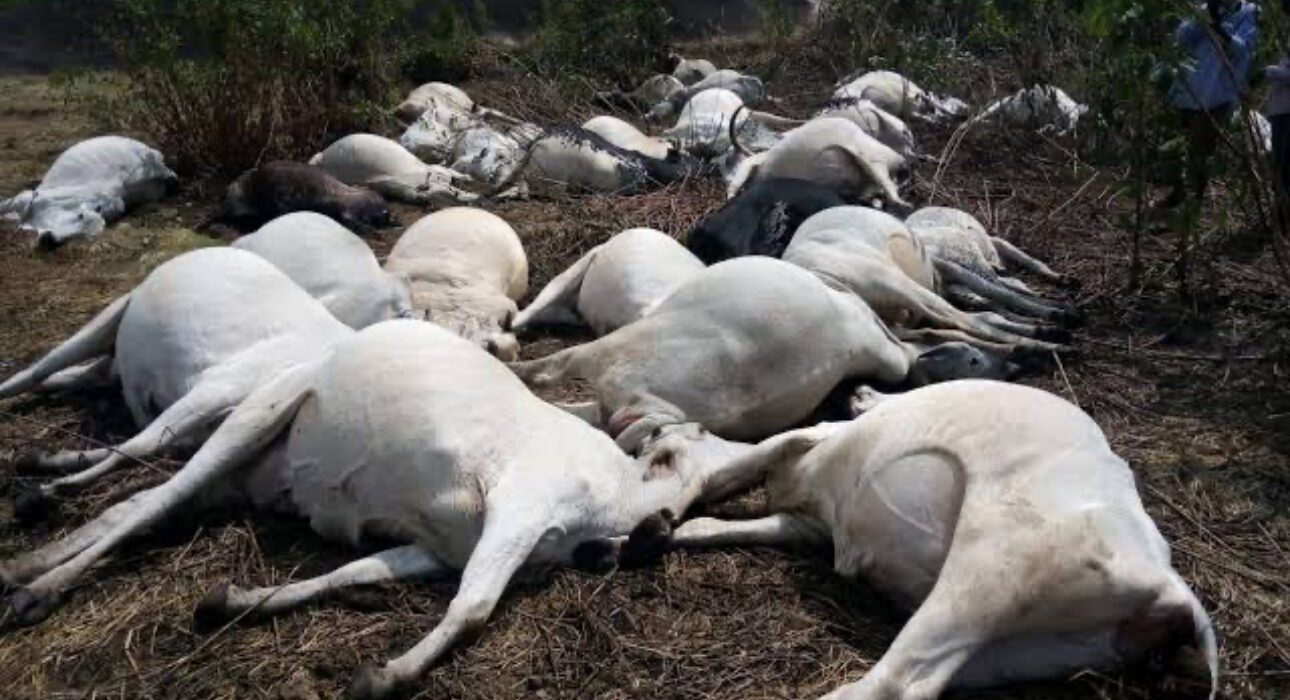Lightning Strike Kills 32 Cows During Heavy Rainfall in Ogun

Tragedy struck in Osara, a village in the Obantoko area of Abeokuta, Ogun State, on Saturday, when a powerful lightning bolt killed no fewer than 32 cows during a heavy afternoon downpour.
The freak incident occurred around noon amid intense rainfall that swept across parts of the state. According to eyewitnesses and local leaders, the cows, belonging to Fulani herders, had been gathered at a grazing point in the open field when the lightning struck. The animals were discovered lifeless shortly after the rain subsided around 2:00 p.m.
Speaking to reporters, the Baale, the traditional ruler of Osara, Chief Wasiu Afolabi, confirmed the account:
“I was at home on Saturday when the Fulani herders came to report that lightning had killed 32 of their cows. I followed them to their grazing area and saw the dead cows myself.”
The incident has since been reported to both the Aregbe Police Division and the Odeda Local Government authorities. According to Chief Afolabi, plans are underway to convene a meeting with the affected herders to discuss the next steps, including possible support and how to avoid such tragedies in the future.
Ogun State Commissioner of Police, Lanre Ogunlowo, also confirmed the development. He stated that the command received the report around 1:30 p.m. and that officers were immediately dispatched to the scene.
“Our preliminary findings show that the cows were struck by lightning during the thunderstorm. There’s no indication of foul play,” he told journalists.
While deaths of livestock from lightning strikes are rare, they are not unprecedented, especially in rural, open grazing fields during Nigeria’s peak rainy season. Experts note that animals gathered in open areas are particularly vulnerable to sudden electrical discharges from the atmosphere during storms.
The economic implications for the affected herders are severe. With the market value of a single cow ranging between ₦400,000 and ₦700,000, the cumulative loss is estimated to run into millions of naira. Authorities are reportedly considering support measures to mitigate the impact.
Meanwhile, the community is on edge but calm, as local leaders move to prevent unrest or tension between residents and the Fulani herding community, who are a vital part of the local livestock economy.
As Nigeria enters the heart of its rainy season, the incident has sparked fresh concerns about extreme weather safety in rural areas. Agricultural experts are calling for increased education and improved shelter infrastructure for livestock during thunderstorms to prevent future occurrences.









